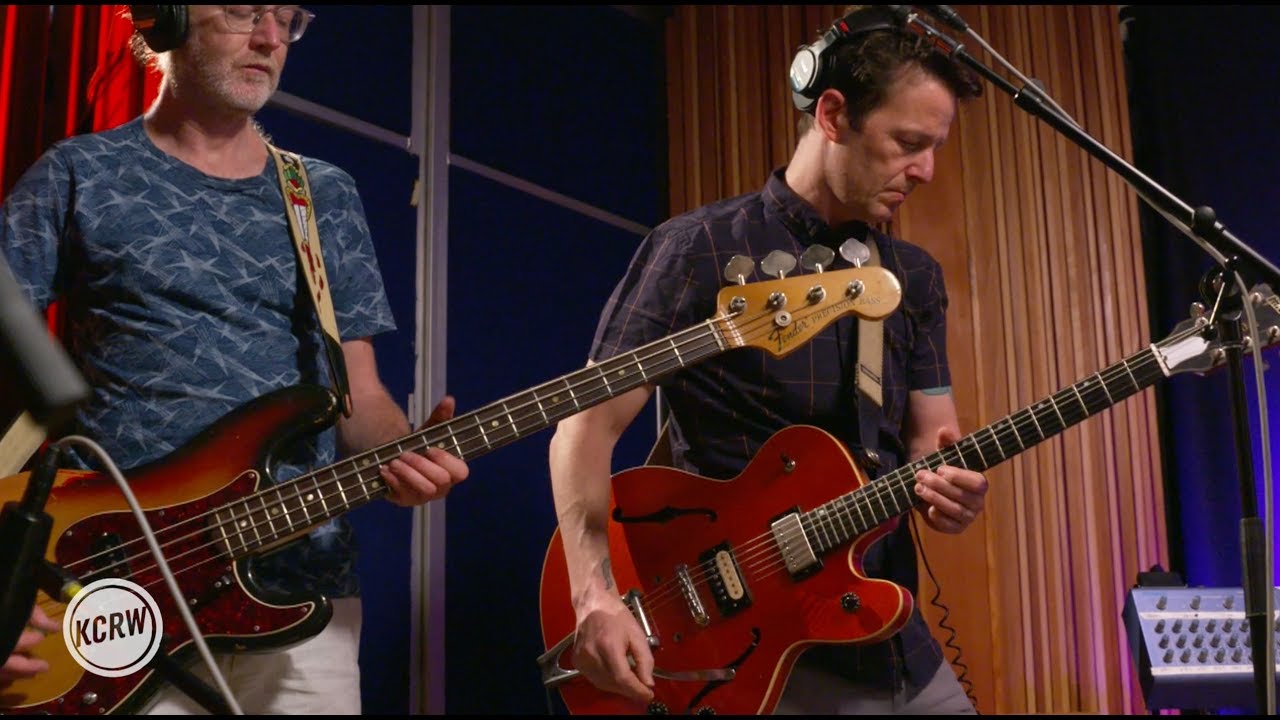It was not without a certain trepidation that one awaited Broken Social Scene’s appearance at the End Of The Road festival last summer. The Canadian group serve as the very definition of ‘sprawling collective’, with all the downsides that come with that tag. Given free rein, they have been known to meander on and on – then on and on some more, before topping it all off by going on and on some more – and one show at the Astoria in London in 2006 springs to mind, a set so long and boring that Transport for London had knocked down the venue and started building the Crossrail station before the band even got to the encore.
On the other hand, when forced into a little discipline, they could astound. At their first London show, at the Barfly in Camden, early in 2003, given a slot of no more than an hour, they were simply brilliant, the very best of their songs presented concisely and with absolute definition. Leslie Feist singing ‘Anthems For A Seventeen Year Old Girl’ that night was a quite staggering five minutes of live music.
At End Of The Road we got the disciplined version of BSS. Again, they had just 60 minutes, and by the hour’s end, the crowd had swollen massively, drawn by euphoric brass fanfares and songs that communicated the very sense of what people go to music festivals for: one felt both alone with the music, and lost in the crowd at the same time. It was epic in all the right ways, and none of the wrong ones.
But it’s one thing to appear on a Sunday teatime in front of a festival crowd who are finally getting some sunshine after a bucketload of rain, playing your old favourites, another entirely to make a new album that manages to encapsulate your strengths, to remind people of what they loved in the first place, and still take them somewhere new. It’s harder still when the seven years since your previous album have seen your style of music – and let’s not beat about the bush, BSS are an indie band – disappear from fashion.
When they made their breakthrough in 2003, it was on the back of a rave review in Pitchfork for the album You Forgot It In People that made them one of the first beneficiaries of ‘The Pitchfork Effect’, in which they were propelled far beyond where they might otherwise have expected to land. The idea, now, that they might generate such excitement is, frankly, laughable, as you might have gathered from the lack of excited interviews appearing in the press in the run-up to this record. You might argue that this doesn’t matter, that it’s all about the music. But it’s not. It’s almost never all about the music: pop is built on the thrill of the new, of the charge of excitement that enters a room when a band has not just great songs, but great buzz, a great story, an ineffable air of being something new and alien placed into one’s life just to add some sparkle. Which means that Hug of Thunder has to be awfully, awfully good to compete with people’s memories of You Forgot It In People or Forgiveness Rock Record.
It is awfully, awfully good. It’s brilliant. It’s the record Broken Social Scene have always had within them, but perhaps never quite achieved. I can’t help but contrast my memories of BSS’s first London show with Arcade Fire’s own debut in the capital, where Win Butler’s eyes remained firmly focussed on a point a couple of hundred feet beyond the back wall of King’s College Student Union. Arcade Fire always had a gimlet eyed ambition – their template was, basically, Broken Social Scene pulled sharply into focus, with added Whoa Whoa Whoas – and as result, they were the sprawling Canadian collective who got to fill arenas. Hug of Thunder is a record as anthemic and uplifting and contradictory as anything Arcade Fire have made, but without the slightly offputting sense of calculation. Had it come out in 2006, they’d be the ones filling the arenas now.
On Hug of Thunder, ambience and precision alternate. The title track alone – my favourite song of year, and a gorgeous performance from Feist – drifts from reverie, seemingly meaningless, into a memory as sharp as a digital photograph: “The Kennys said I broke in over the summer / It was the evening when he climbed that tree / I was afraid what he was doing inside so I followed him to stop a robbery.” And then it yanks back into a chorus whose meaning is found not in its words, but in the sensations it evokes. It talks of the numbness we feel, but it is anything but numb: it insists on our involvement, in our commitment to community, in the light that can chase away darkness. And then it fades out, on an unsettling lurch back into reality: “There was a military base across the street / We watched them training while we leaned.”
The passing years and changing fashions have been noted, too. If ‘Mouth Guards Of The Apocalypse’ notes that “It’s dancer and hatred / And the radio sounds like shit”, then Stay Happy – while never likely to be mistaken for the work of Kelela – takes in little stabs of R&B-inflected synthetic horns, setting them afloat on a backing track that moves from a minute or so of fanfare on to something choppy, poppy, loose-limbed and summery. And then throws in huge trombone breaks, just in case things were getting a bit too straightforward.
Nothing here moves straightforwardly from A to B, but nothing feels as if it has been thrown in just because someone had the idea to do it. Sometimes in the past, one had the slight sense that Broken Social Scene were burying their songs beneath too many ideas. There’s no shortage of ideas here, but the songs manage to match their sophistication with simplicity. The hearts of the songs – the melodies, the glorious melodies – are brought to the foreground, and the interludes from the principal melodies serve to throw them into sharper contrast rather than to obscure them. For all its ambition, its musical discursiveness, Hug of Thunder is a very direct album. You do not have to uncover its pleasures; they are offered up to you.
What makes it even more of a triumph is the fact it was not an easy album to make. For a start, there was the matter of getting 17 musicians to assorted studios at assorted times to record their assorted contributions. There was the fact that 17 musicians bring 17 egos and 17 points of view. There were personal problems. “You know,” Kevin Drew told me earlier this year, “Fleetwood Mac has nothing on us, nothing, when it comes to inter-band relationships. There have been moments where it’s like, ‘What the fuck did we get ourselves into?’” And even when the album was done, it wasn’t done. Mixing and mastering dragged on past the appointed due date, rarely signs that all is going well with an album.
But what has emerged is Broken Social Scene’s best album. A decade ago it would have been a career-maker. Half a decade ago it would have been enough to get them on to the covers of magazines. Now it has to settle for its own description of itself. It really is a hug of thunder.



